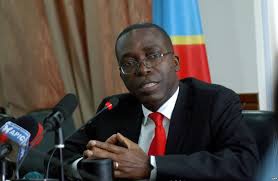 DRC Prime Minister, Augustin Matata
DRC Prime Minister, Augustin Matata
Prime Minister of the Democratic Republic of Congo (DRC) has stated that ending extreme poverty in Africa will not be achieved any time soon if African leaders continue to excessive rely on the International Monetary Fund (IMF) and the World Bank for support.
Augustin Matata made this known when he addressed students and senior government officials at the Shared Prosperity Forum held at the University of Ghana (UG) on Friday in Accra.
The forum created the platform to discuss the way forward in ending poverty in Africa in line with attaining the Sustainable Development Goals (SDGs) by 2030.
According to Mr. Matata, ending poverty in Africa would depend on ensuring prudent macro-economic stability and reforms.
Sharing DRC’s experience in stabilizing its economy in spite of the civil war that rocked that African nation, he stressed the need for African leaders to pay critical attention to the issue of good governance devoid of wanton corruption and abuse of public office.
Financial aid from the IMF, World Bank, in his view, has not produced the desired result to end poverty in Africa.
He therefore urged governments, citizens and civil society to help curb corruption on the continent.
Africa, according to a World Bank Group report, experienced robust economic growth over the past two decades, growing at an average annual rate of 4.5 percent.
However, this growth rate failed to lead to substantial improvement in the lives of Africans on the continent.
In his submission during a panel discussion, World Bank President Dr. Jim Yong Kim stated that ending poverty in Africa must take into account investment in the education of young people, as well as the empowerment of women.
He said children in Africa must not continually be denied access to basic education, adding that African leaders must build their infrastructure across all sectors, particularly in the area of health.
Vice President of World Bank, Africa Region, Makhtar Diop said that over the last two years commodity prices have been falling in Africa.
He pointed out that African states need to increase their investments in the agriculture sector which offers employment to about 70 percent of persons living on the continent.
President of the African Development Bank, Akinwumi Adesina, for his part, said Africans must see agriculture as a business activity rather than mere development issue.
Mr. Adesina stressed the need for African states to add value to their cocoa beans before exporting them overseas.
Due to the fact that African countries which produce about 75 percent of world cocoa are not adding value to their cocoa before exporting them, they are only earning three percent from the $100 billion world cocoa market, he added.